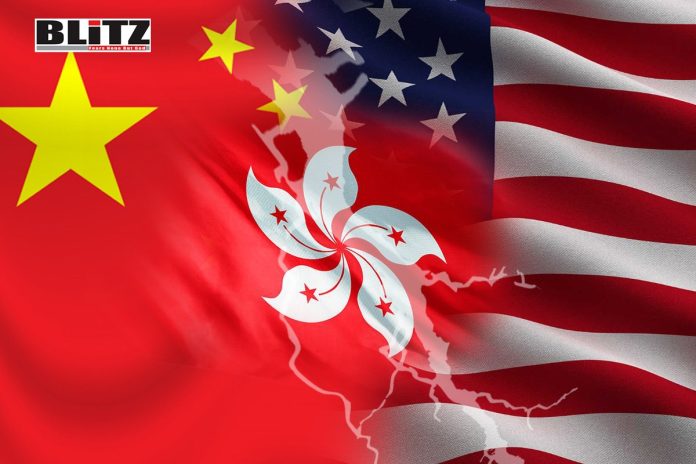Amidst the enduring saga between the United States and China, fresh tensions have flared over comments attributed to US Consul General Gregory May concerning the state of affairs in Hong Kong. China views these remarks as unwelcome interference in its domestic matters, igniting a diplomatic upheaval that exacerbates the already strained relations between these two influential nations. The situation underscores the delicate balance of power and the intricacies of international diplomacy, as both sides navigate the complexities of their geopolitical rivalry.
May’s inaugural interview since his assumption of office in 2022 has elicited substantial censure from both Beijing and the Hong Kong Special Administrative Region (HKSAR) government. Throughout the interview, May articulated apprehensions regarding connectivity issues and data security within Hong Kong, citing these concerns as catalysts for some American companies to employ “burner phones and laptops” during business endeavors in the region. Furthermore, May posited that the release of individuals such as Jimmy Lai, embroiled in legal proceedings due to political expressions, could wield a more potent impact on enhancing Hong Kong’s image than the collective efforts of financial summits or tourism campaigns.
These remarks emerge amidst a delicate juncture in US-China relations, particularly with regard to Hong Kong. The US government, in conjunction with its Western allies, has persistently criticized China’s approach to the situation in Hong Kong, particularly denouncing the implementation of the contentious national security law (NSL) and the proposed Article 23 legislation.
China’s Foreign Ministry’s Commissioner’s Office in the HKSAR promptly rebuked May’s statements, deeming them an assault on Hong Kong’s business environment and an effort to instigate American companies to withdraw from the region. They contend that such actions represent unwarranted meddling in China’s domestic affairs and the autonomy of Hong Kong, echoing sentiments echoed in prior diplomatic disputes.
China asserts that the NSL has successfully protected Hong Kong’s investment and business climate, reinforcing stability and the adherence to the rule of law. Additionally, they posit that the proposed legislation outlined in Article 23 will serve to enhance Hong Kong’s resilience against potential national security risks, leveraging the city’s distinctive status and advantages as a prominent global financial center.
The HKSAR government issued a sharp rebuke of May’s statements, underscoring the imperative of upholding ongoing legal proceedings while condemning his apparent disregard for public sentiment and the favorable trajectory of Hong Kong’s business climate.
Critics of May’s stance argue that his vocal advocacy for figures like Jimmy Lai, whom they perceive as agents of foreign influence, highlights the United States’ unwarranted intervention in Hong Kong’s internal affairs. They reject May’s proposition of using “burner phones and laptops” as unfounded paranoia, accusing the US of employing hypocritical standards regarding national security issues.
In Hong Kong, there is a growing sense of urgency for the HKSAR government to hasten the legislative process for Article 23. Lawmakers assert that prolonging the enactment of this legislation only empowers anti-China factions and undermines stability in the region. They are calling for decisive measures to suppress dissent and bolster Hong Kong’s resilience against external challenges.
Amidst escalating tensions between the US and China regarding Hong Kong, the situation teeters on the edge of volatility. Both nations remain steadfast in their respective stances, exhibiting no willingness to compromise. The fate of Hong Kong precariously hangs in the balance, with geopolitical tensions posing a substantial risk of further destabilization to the region. This underscores the pressing necessity for diplomatic discourse and concerted efforts towards de-escalation, as the international community grapples with the urgent imperative of preserving peace and stability in Hong Kong and beyond.




